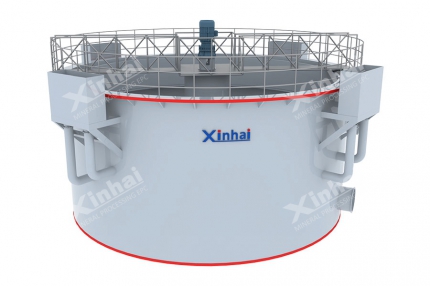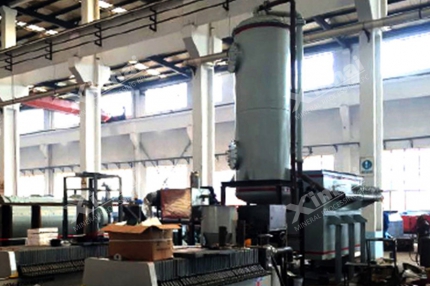The gold mine flotation process is a widely used gold ore separation technology, which can achieve selective separation of gold ore particles and gangue minerals. The flotation process is conducive to the concentration of gold particles to achieve effective extraction of concentrate and facilitate subsequent gold refining. The flotation process mainly uses the surface differences between gold particles and gangue minerals for sorting, which can improve the recovery rate of concentrates. The selectivity of the flotation process can optimize the recovery rate of gold and try to avoid unnecessary mineral processing links, thereby improving the efficiency of gold ore separation and improving the economy of the entire mineral processing production line. The following will introduce you to the gold mine flotation process, as well as the factors that affect flotation efficiency, and how to avoid these factors to improve mineral processing efficiency.
Use the table of contents below to navigate through the guide:
01What is gold mine flotation process?
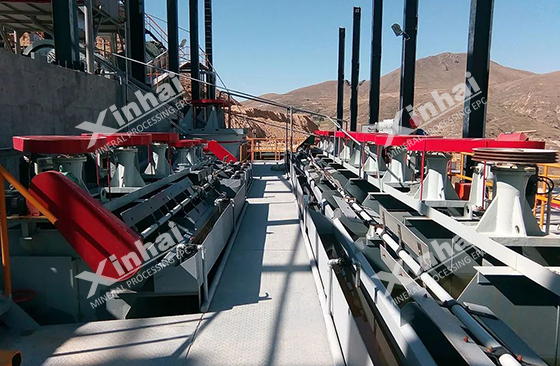
Gold mine flotation uses the differences in surface properties between mineral particles to separate gold minerals from gangue minerals. During the flotation process, finely ground ore will be mixed with water and flotation chemicals in the flotation tank, and air will rush into the flotation machine to generate bubbles. These bubbles selectively attach to the hydrophobic surface of the gold particles and are then brought to the surface of the flotation cell as a froth product. The foam containing concentrated gold particles is skimmed off and further processed to extract the gold particles. The remaining gangue minerals sink to the bottom of the flotation cell and are discarded as tailings. Through this selective flotation process, the recovery rate of gold in the ore can be significantly improved.
02What factors will affect gold mine flotation efficiency?
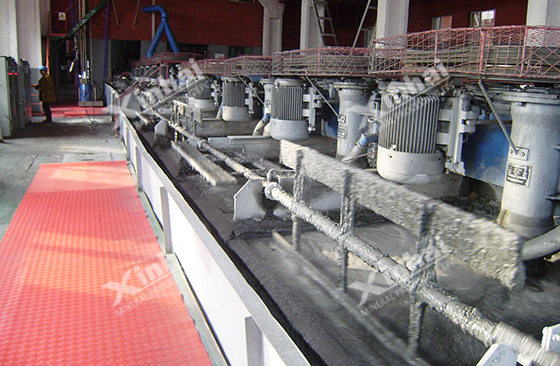
Several factors affect the efficiency of gold ore flotation processing. Some key factors include:
1. Particle size: The size of gold particles in the ore will significantly affect flotation efficiency. Finer particles may not adhere to bubbles as easily as coarser particles, affecting recovery rates.
2. Mineralogical characteristics: The presence of sulfides, oxides and other minerals in the ore will affect flotation efficiency. Even some minerals may interfere with the attachment of gold particles to air bubbles, or the addition of specific flotation reagents may be required for effective separation.
3. Agent selection: The selection and dosage of flotation agents, such as collectors, foaming agents, pH adjusters, etc., play a vital role in flotation efficiency. Optimal reagent selection is critical to facilitate selective flotation of gold particles while suppressing unwanted minerals.
4. Slurry density: The density of the slurry in the flotation tank affects the dynamics of the flotation process. Maintaining proper pulp density ensures adequate particle suspension and bubble-particle collisions, thereby increasing efficiency.
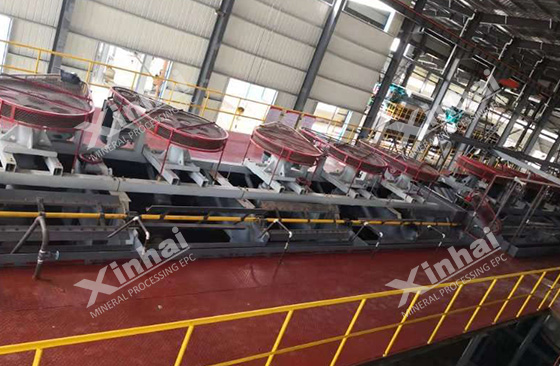
5. pH value: The pH value of the flotation slurry will affect the surface charge of the mineral and the performance of the flotation reagent. Adjusting the pH to an optimal range can improve the selectivity and efficiency of gold recovery.
6. Stirring and aeration: Proper stirring and aeration in a flotation machine are crucial to promote contact between bubbles and gold particles. Insufficient stirring or aeration will result in lower recovery rates.
7. Water quality: The quality of process water, including its composition and impurities, will affect flotation efficiency. Contaminants such as dissolved ions, organic matter, and suspended solids may interfere with the flotation process or require additional treatment.
03How to avoid affecting the efficiency of gold mine flotation?
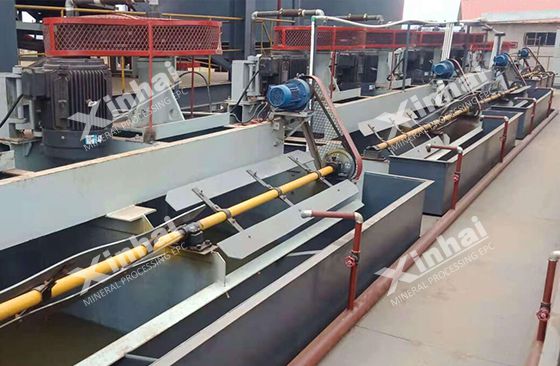
In order to avoid the above problems and improve the efficiency of gold ore flotation processing, the following strategies can be adopted:
1. Analyze ore properties: Conduct a thorough mineralogical and chemical analysis of the ore to understand its composition and determine optimal flotation conditions.
2. Optimize the reagent scheme: Evaluate different flotation reagents and dosages to determine the most effective combination for selective gold recovery while minimizing the impact on other minerals.
3. Control and optimize the process: Implement advanced control strategies and monitoring systems to optimize key parameters such as pulp density, pH, mixing and aeration.
4. Timely maintenance of equipment: Ensure that flotation equipment is regularly maintained and calibrated to maintain optimal performance and prevent downtime.
5. Continuous improvement and optimization process: Continuously monitor and evaluate flotation performance, and implement improvements based on continuous data analysis and process optimization work.
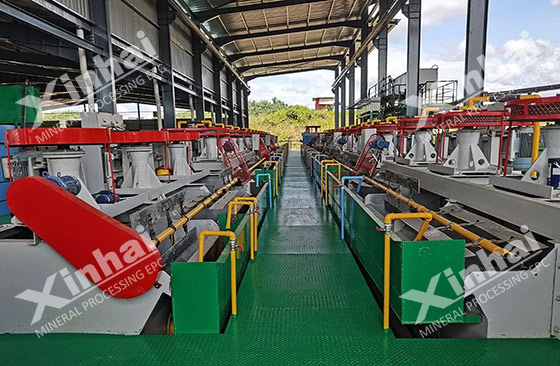
The above content is the factors that may occur in the gold mine flotation process, as well as strategies on how to avoid the influence of these factors. Comprehensively understanding these factors and optimizing and adjusting the mineral processing process can help avoid errors in the process and reduce production efficiency. Xinhai Mining recommends conducting a beneficiation test to comprehensively analyze the properties of the ore, and customize the gold ore beneficiation process to improve the beneficiation efficiency and ore recovery rate.


 marketing@ytxinhai.com
marketing@ytxinhai.com  0086 13810327080
0086 13810327080 




























































































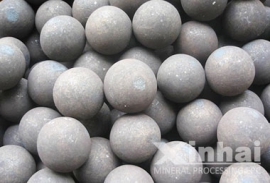
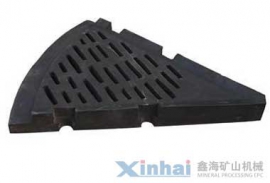








 CHAT
CHAT MESSAGE
MESSAGE




